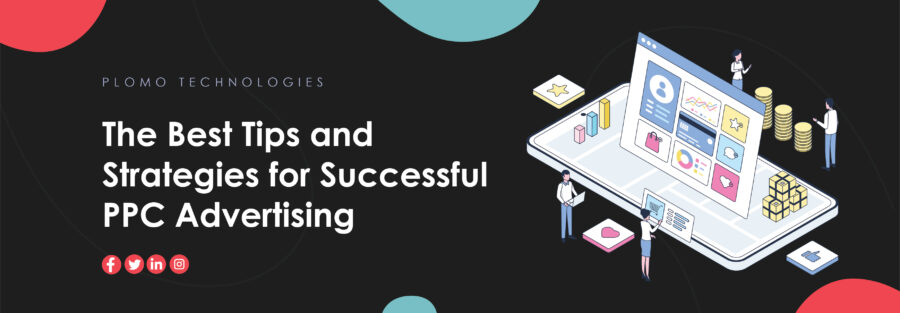PPC advertising is a great way to get your business noticed on Google, Bing, and other search engines. It allows you to target specific users based on their interests, keywords, and search terms. While this may seem like a bit of an uphill battle against the big guys that come up in a standard search engine result page (SEND), PPC advertising can be much more cost-effective than other forms of advertising. However, it’s not always easy to succeed with PPC ads. So if you’re just getting started with this type of marketing campaign, here are some helpful tips and strategies for successful PPC advertising . . .
Research your keywords and audience
The first step towards successful PPC advertising is to do thorough keyword research. You’ll want to choose the right keywords for your business and products so that your ads are relevant. Try searching for terms that are relevant to your business and product offerings. Then, check to see which keywords have a decent amount of search volume, but low competition. This will help you to get your ads in front of interested users who might click through and make a purchase. Be sure to take some time to learn about your audience. Who are they? What are their interests? What are their buying habits? This will help you to craft ads that are relevant and useful.
Offer a valuable incentive
While your ads should be focused on getting people interested in your products, they should also have a valuable incentive. What do you have to offer your potential customers? You should offer something that makes using your business more convenient or appealing. For example, if you’re a car dealership, you might offer a free oil change with every purchase. This gives your potential customers a reason to click through and visit your website. Your ads should also have a compelling call-to-action (CTA). This is what prompts users to click on your ad. You may want to include an offer, a discount, or something else that prompts your audience to click through.
Define your goals
You should always define your goals before creating PPC ads. This will help you to understand what you want your business to get out of the ads. It will also help you to tweak your ads as needed to achieve the best results. Some of the most common goals for PPC advertising include increasing brand awareness, driving more traffic to your website, and increasing sales. If you have multiple goals, you may want to create separate ad campaigns for each one. This will make it easier to track your success and tweak your campaigns as needed.
Create quality ads
Now that you know your keywords, have a valuable incentive, and understand your goals, you can create quality ads. You should create ads that are appealing to your audience. They should be short, sweet, and to the point. Your ads should also include quality images that are relevant to your business and product offerings. Make sure that your keywords are included in your ads. You can use keyword suggestions or auto-complete to help you come up with the best keywords. Make sure that your ads aren’t misleading. You don’t want to offer false advertisements or something that isn’t true to your brand. If you’re offering a free oil change with every purchase, make sure to include that in your ads.
Don’t forget the ad extensions
Ad extensions are additional features that you can add to your PPC ads. They will help you to stand out from other ads and get more attention from your audience. They can also help to grab the attention of users who may have missed your original ad. Ad extensions allow you to add extra information, such as product details, extra images, and more. They can also include information about your business, such as the hours that you’re open and the address of your store. Ad extensions will cost you a bit more, but they can be a great way to boost your ad’s effectiveness and help to increase your click-through rate (CTR).
Summing up
PPC advertising can be a great way to get your business noticed on Google, Bing, and other search engines. But you have to know your keywords, have a valuable incentive, and understand your goals before you get started. Once you have those down, you can create quality ads that include keywords and ad extensions.




